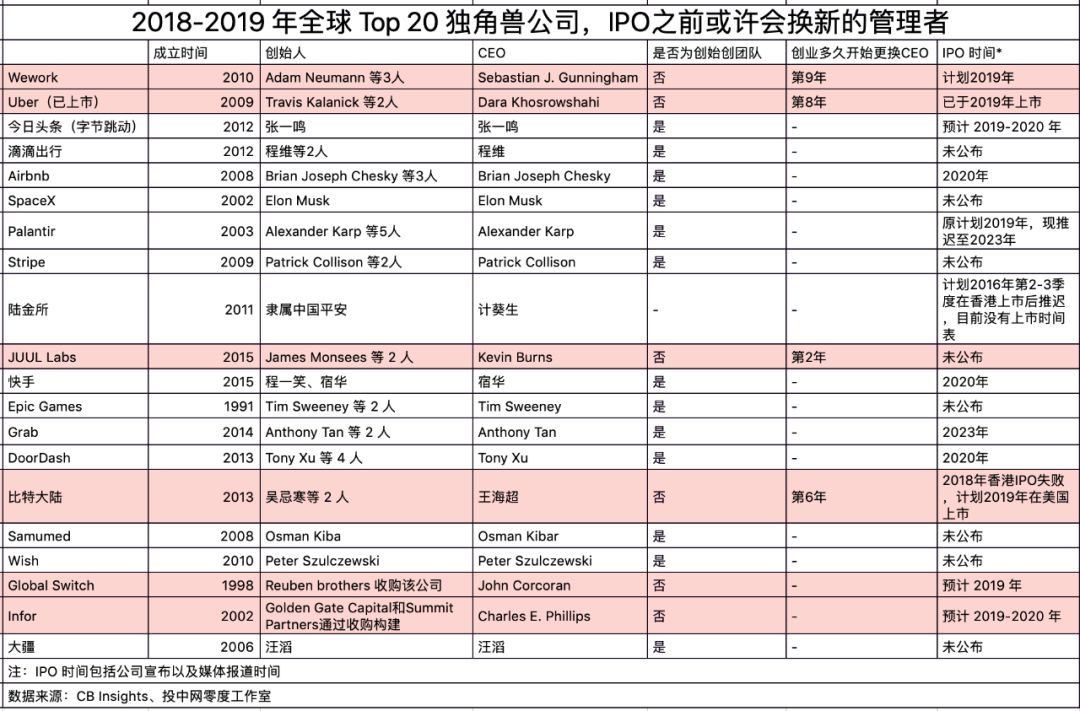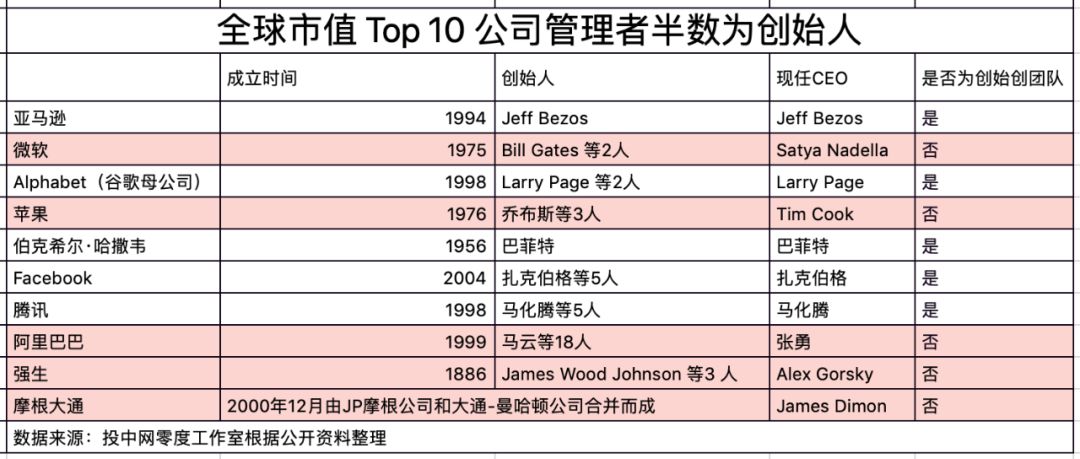The checks and balances of the founders may have changed since the beginning of external capital intervention.
Editor’s note: This article is from WeChat public account “investing in the network” (ID: China-Venture), author Lin Tang, editor Chen Ziyang.
Li Guoqing once again stood in the whirlpool of public opinion. The Dangdang original CEO and founder, once again with his wife Yu Yu, another founder of Dangdang, “communicates” with company management, equity distribution and personal style issues. Regardless of the outcome of the outcome, what cannot be changed is the loss of reputation that Dangdang brought to this Dangdang. In fact, as early as last year’s support for Liu Qiangdong’s Mingzhou incident, Dangdang’s official Weibo had clarified that Li Guoqing’s remarks did not represent the company.
Many managers of new economic companies are often founders. But once the company’s development is not smooth, or because of an incident involved in public opinion, in the short term, the reputation declines or the market value plummets, its investors like to change the CEO – precisely the manager of the company. Because they were judged to be unable to bring benefits to investors.
Recently, WeWork co-founder and CEO Adam Neumann has been “decided” to leave the company completely and give up his voting rights.
The company’s long-term huge losses and Neumann’s unstable management style, as well as his indulging lifestyle, are infinitely magnified at this special moment. The investor blamed him for the failure of WeworkIPO. The New York Times said that some investors believe that replacing Neumann requires an experienced operator to join, otherwise they will not invest in Wework.
The same thing happened in Uber in 2017. At the time, Uber was involved in a series of seemingly endless legal and ethical scandals, and its founder and CEO, Travis Kalanick, was one of the sources of all. Eventually he was kicked off.
“Replacement managers are more common for companies, and to some extent they are not suitable for the company’s current development speed.” An investor who did not want to be named told the investment network.
The investment network counts 20 since 2018The world’s largest “unicorn” company, including 12 companies including Didi Travel, Airbnb, is currently the founder and CEO. And with six companies, the role of their managers is no longer the founder. The six companies all have similarities: their founders were managers, but they were replaced before the IPO or after an IPO failure.
The reason why the new economic company can successfully win countless capitals is often tied to the story of the founder and the mission of its creation. Due to the design of the shareholding structure, it is not easy for the board of directors to dismiss them from the company where the founder is the CEO. In fact, the checks and balances about their power may have changed since the beginning of external capital intervention.
Managers look for directions, find people, find money, and most importantly, match the company’s growth rate
“For the founding team, most of the time before the listing is a watershed.” Several investors who contacted the network have expressed similar views.
An investor who does not want to be named tells Cast.com that it is not a good thing to be able to keep up with the speed of the company, whether it is the founder or the founding team. After the failure of the IPO in Hong Kong in 2018, Bitcoin replaced the CEO and made business adjustments and layoffs.
A CMO who has worked in the post-investment management business said that the founder and CEO are the core roles of the company. Generally speaking, the CEO’s functions are mainly in three aspects: the company’s development direction, finding someone and finding money.
“The general founder and CEO, sometimes there are some sensible things in it, he always has a dream goal.” He told the cast. Indeed, the founder and his entrepreneurial mission often appear in reports before they reach the open market.
For example, Wework said, “I hope not only to create beautiful shared office spaces, but we want to build a community.” Uber claims, “Ignite opportunities by driving the world.” Lyft, also a taxi software, said. “To improve people’s lives through transportation.” As for China, Xiaomi’s mission is “to always insist on being a good product that is moving and has a good price.” Meitu said that it is necessary to “make the world more beautiful.”
Before these prospects are unlisted, they will be repeatedly told by the founders why they want to start a business, want to change the industry, and seek more benefits for people.
The above-mentioned CMOs who have been engaged in post-investment management business told the China Investment Network that it is better to make some speeches, attend events, and make announcements in the early stage. The cost is relatively low and easy to operate. In the later period, if he is no longer in line with the company’s development speed, it will be different.It is. For example, management capabilities cannot be upgraded as the company expands, and it is unable to bring a new round of financing to the company. The operational business data has not kept up.
Take Li Guoqing as an example. He founded one of China’s earliest e-commerce platforms – Dangdang. However, after the rise period, the development of Dangdang, which is dominated by books, gradually lags behind Alibaba, JD.com and later. In the second half of 2018, Li Guoqing was caught in the whirlpool of public opinion due to various inappropriate remarks and behaviors, and was dubbed by Dangdang’s official Weibo. Later, in the internal complex dispute, Li Guoqing announced his departure from Dangdang in February 2019.
The above CMO summarizes the startups that have served in the past and found that many replacement managers occurred earlier. He said that after financing B and C, many companies have begun to change CEOs. “There are not enough funds in these two stages to determine whether a startup can ‘live’.” The CMO, who did not want to be named, also said that many CFOs responsible for funding control are also in Round B. Or after the C round began to be introduced.
In fact, the founders are not always accompanied by the company. The Harvard Business Review surveyed 212 US startups from 1990-2000. They found that less than 25% of the founders were able to lead the company in the market; in the third year after winning the venture, more than 50% of the founders were no longer CEOs, and most of the founders were in the process of growing up. Out of control of the company; in the fourth year, only 40% of the founders remained in the company, but they no longer hold important positions.
“The key is to meet the development needs of the company.” Another investor who did not want to be named told the investment network that no matter how the investment form and business model change, the constant change is that managers must bring benefits to investors.
The key to both the founder and the CEO is to make money for investors
Investing in the Internet to ask a number of investors to understand that whether it is a startup, or a company that has developed to a certain stage, its managers need to match the company’s development and the requirements of the stakeholders. The China Investment Network also counts the current top ten market capitalization companies in the world, and the founders of the five companies still hold the role of managers. Behind this, it is no less than the fact that these founders have provided rich performance reports for the company during their tenure as managers, and also met the needs of investors.
For investors, change a manager – whether it is the founder or not A way to stop losses in a timely manner.
The Wall Street Journal quoted people familiar with the matter as saying that Neumann would receive about $1.7 billion in compensation. Compared to Wework, which has a valuation reduction of $40 billion, the compensation is still relatively cost-effective.”.
“The early founders and founding teams went together in the later period of time, there will be a sensible and rational struggle: I feel that we are all the way, everyone is struggling, very emotional foundation. But from the practical level Speaking, there are indeed some partners who can’t make too many contributions at this stage, and they can’t display more of their abilities. From the role of managers, they should consider the sentiment, and many people are more emotional, this is also The characteristics of our Chinese.” The aforementioned CMOs engaged in post-investment management business said that the situation is no longer “difficult to divide” this year.
Economic changes have significantly changed the speed of the venture capital sector. The risk control manager of an investment company said that the funds that the fund can get in this year are much less, and the market funds are less. For the funds invested by their company alone, “the money invested in the company is very slow and more cautious.”
“The changes in the big environment have made everyone rational, and they have changed their teeth when they bite their teeth. It is impossible to give more compensation.” The CMO, which is engaged in post-investment management business, told China Investment Network, “Looking for a partnership in the first half of this year.” People looking for CFOs are quite a lot.”
An investor who has worked in the investment industry for many years tells China Investment Network to evaluate suitable managers for start-ups; and introduces a system for managers to change managers with appropriate business development when appropriate. . “Two aspects are very important,” he said. At the same time, he took Alibaba as an example. In 2010, he proposed the “partner system” and gradually reduced the rights of the founders in the subsequent development.
But actually, Ma Yun talked about the duties of the founder and CEO in a public speech, accusing the investor of pursuing the interests and prefer to change the CEO.
“I don’t know what kind of mistakes we make, so many investors like to change CEOs. They say the company is very bad. Maybe this head is not perfect, but if you change it, the whole body will die. …Investors are the company’s uncles, but the founders are the company’s parents. Uncles should give money to buy milk, but they are never parents, and should not change their parents,” Ma said.
No matter what, whether it is the founder or the manager, as long as the interests of the investors are involved, the final decision-making board will hand over a comforting solution. And the most common of this program, just change one person. And this replacement speed may be faster and faster.
Juul, an e-cigarette company founded in 2015, is probably the fastest CEO to change CEOs. Less than two years after its founding, former founder and CEO Tyler Goldman claimed to pursue a new entrepreneurial opportunity and handed over the CEO to Kevin Burns.
But with the increase in e-cigarette-related deaths and injuries (mainly related to Juul) and the federal regulations or issuance of e-cigarettes in the United States, the challenge for Juul – most notably the decline in sales, in September this year, Kevin Kevin Burns wasRequired to resign.
CNN quoted Tim Hubbard, an assistant professor at Notre Dame Business School, as saying that Juul had no choice but to replace Burns. For Juul, the first development requires the introduction of a traditional tobacco executive who is good at marketing and knows how to manage government relations.
The risk management manager of the aforementioned investment company told the investment network that even if it is a startup that has not yet been listed and is still groping on the profit model, the investor’s expectations for the manager are the same: it can bring benefits.


